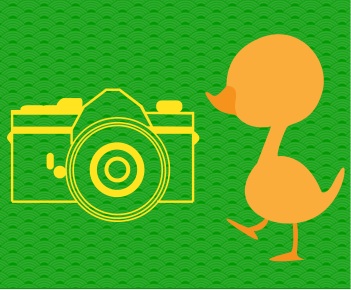- Blog Home
- Content Marketing
- Tiffany G
- How Journalists Can Make The Transition Into Content Marketing
How Journalists Can Make the Transition into Content Marketing

The rise in content marketing has given some journalists a new career path.
Content marketing is seeing massive growth -- with 2013 bringing a $44 billion valuation -- while newspaper revenues have shrunk dramatically -- revenue declining from $45.4 billion in 2006 to $37.6 billion last year. Journalism has lost a tremendous amount of talent in those years due to massive layoffs, but, fortunately for the affected journalists, the rise of content marketing offers them a new home.
Since so many of the skills necessary for journalism -- writing, editing, idea generation and attention to detail -- are required for content marketing, it's a relatively easy career transition to make. Here's why journalists make excellent content writers.
Google Brings Quality to Light
Journalists have Google's search quality improvements to thank for much of this opportunity. Algorithm changes have been directed towards a single end: web searches should favor quality, highly regarded content over articles strategically stuffed with keywords. Journalists have been trained day-after-day by their editors to write compelling, succinct writing. It's 'show, don't tell' instead of "style over substance." While there's some necessary adjustments journalists need to make in order to write web-exclusive content, the core skillset is crucial: distilling the most important information from the most authoritative, compelling sources into simple, vibrant copy.
Parsing Big Data
Journalists write engaging, eye-catching articles thanks to your journalism experience. You interview primary sources and dig deep into secondary sources, culling the most gripping statistics for stories, then write a story meant to be understood. These strategies aren't much different from those required by content writing, though the data sets are larger, thanks to companies increasingly relying on big data. User statistics, shopping patterns, web browser usage -- all of these data points and way more are collected by many businesses these days. Investigating skills work well in parsing the useful pieces of information from the chaff (see also: Transforming Data into Digestible Content).
Brevity
Journalists may be used to writing long op-ed pieces or expounding 800 words on a city-council meeting, but the Internet, unlike newspapers, doesn't have pages to fill. This makes for an even greater need for brevity to reach a more impatient audience. The average web page fits approximately 500 words, depending on the font size, site design and a few other factors. What's more, reading off of an LCD screen is harder on the eyes than reading on paper, further reducing the reader's overall attention span and tolerance for longer pieces.
A journalist's skills need to focus on hyper-succinct writing. The Internet is a massive place, filled with countless distractions and time sinks that lure readers away from content(see also: Attention Spans: How to Deliver Content to Your Audience). Catch their attention right away and hold it, combining high-quality, multimedia content to engage as many of their senses as possible.
Mindset
Journalists are taught to eschew a neutral, fact-filled look at a particular topic to keep their copy fair and somewhat unbiased. Marketing, by its very nature, is a persuasive, biased form of communication that will require adjustment on the part of transitioning journalists. While marketing is meant to drive sales first, that doesn't mean that content writing content can't be fascinating, engaging and valuable for it's audience. Content marketing , like journalism, focus on catching users' interests by giving them useful resources. Content marketing differs in that this information is strategically designed to spread awareness of the brand and increase the company's bottom line. Here it's important to redefine the audience. Content writers don't write for a general, local or regional audience -- they are writing to potential customers.
What do you think about the transition from journalism to content marketing? Share your thoughts with us below.
To Read More About Content Marketing, See Below:
The Essential Ingredients for Writing a High-Quality Blog Post
Five Tips for Writing Headlines That Get Attention
Why You Should Ignore Vanity Metrics in Content Marketing